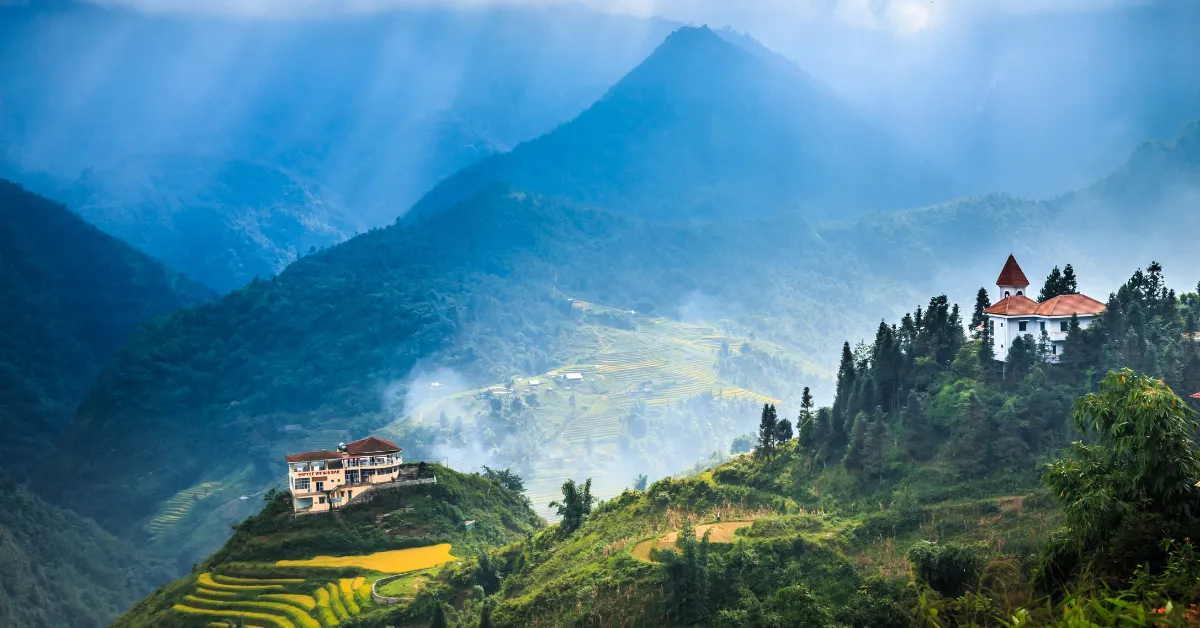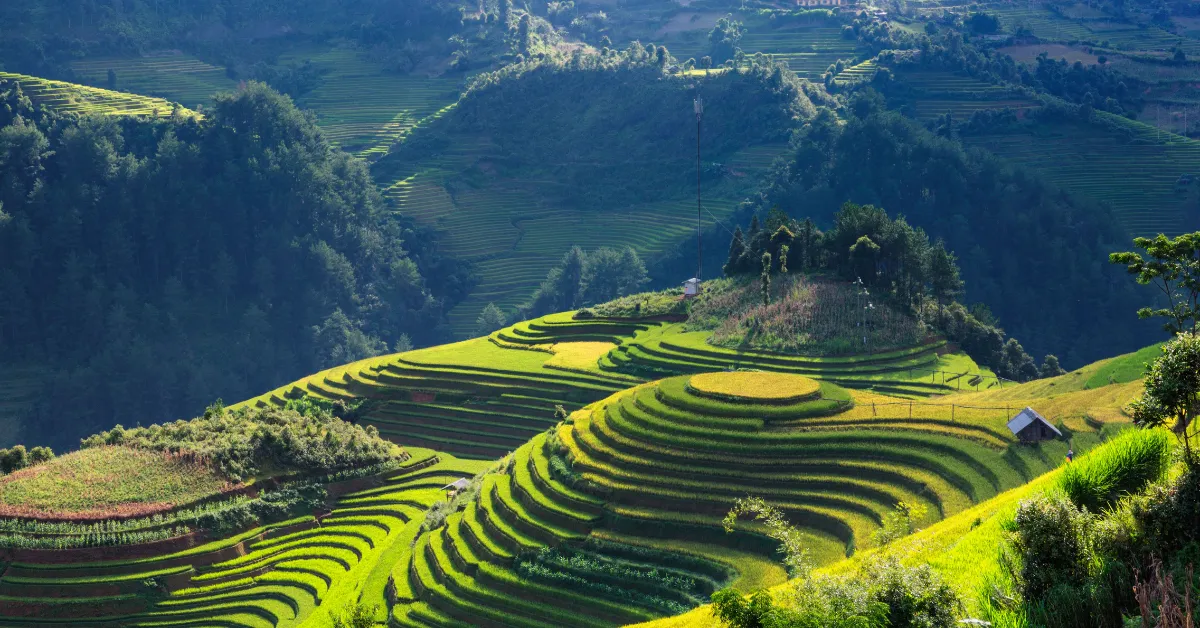Thinking of moving to Vietnam? Before you book that flight, it’s worth finding out about all of the pros and cons of living in Vietnam, so you can be sure you won’t be in for a nasty surprise.
While it can be easy to see a few Vietnamese vacation pictures on Instagram and make a decision to move there on a whim, residing and working in a destination is a little different from spending two weeks soaking up the sun and culture there.
If you’re coming from a western country, there may be disadvantages that haven’t even crossed your mind, as well as significant bonuses that will secure your decision.
So, let’s weigh up the pros and cons of living in Vietnam.
Pros Of Living In Vietnam
Starting off with the best of the country, here are five advantages of living in Vietnam that you might not be aware of.
Affordable Cost Of Living
If affordability is a big factor in your decision to move, you’ll be pleasantly surprised by Vietnam. Depending on which part of the country you choose as a base, you can easily live on as little as $700 per month.
If you choose to live a more luxurious lifestyle, with a nicer apartment, more activities, and some western perks, you’ll still find it hard to spend more than $1400.
You can rent an apartment for just $200, however, if you’ll be spending a lot of time at home, you might wish to upgrade to a nicer one, which will set you back around $600 depending on your location.
When it comes to food, you can get a lot of bang for your buck. A bowl of steaming pho will cost you around $2 while a traditional banh mi costs just $1. Internet, washing, motorbike rental, and other associated costs with an ex-pat life are also extremely affordable.
Warm Weather
We have to mention the weather in Vietnam. The country has a tropical climate with two seasons — wet and dry.
From February to August, there is little rain across the country and the temperatures range between 27 and 33 degrees Celsius – the perfect conditions for catching a tan or jumping in the pool.
The wet season runs from September to January. Don’t let that put you off as rain showers are heavy, but often short-lived. It’s typical for the days to be pleasantly sunny with just an hour or two of downpour in the afternoon.
The temperatures still range between 25 and 30 degrees Celsius in the wet months.
Delicious Food
Food is one of the most obvious benefits of living in Vietnam. The national dish is pho, which you can find on every corner and in every restaurant.
The dish is a combination of light rice noodles, flavorful broth, and perfectly cooked beef. At many food outlets, you’ll find crunchy bean sprouts or fragrant herbs added.
A popular lunch choice, banh mi is another must-try food for anyone who visits Vietnam. It’s a baguette but not as you know it. The sandwich shows off the French influence in the country, with its crusty bread and pâté spread.
The fusion element comes when you combine the above with pork cold cuts, pickled vegetables, red chili, fresh herbs, and mayonnaise.
There are plenty of authentic Asian dishes on the menu at all Vietnamese restaurants. However, if you crave a little taste of home from time to time, you’ll also find an abundance of western restaurants, including global fast food chains.
Friendly Locals
Vietnamese people are notoriously friendly, and often meet tourists with beaming smiles and excited chatter. While you may find it challenging to converse with the locals, especially in less touristy areas, their body language will tell you how pleased they are to meet you.
In the cities, there are many residents who speak English, so start up a conversation or practice your Vietnamese with one of them. If you put the effort into learning even just a few phrases of the language, you’ll get far.
Incredible Scenery
One of the biggest draws of Vietnam is its fantastically diverse landscape. With colossal mountains in the north, thriving green rice paddies, winding rivers, and picture-perfect beaches, you’ll be spoilt for choice when it comes to deciding on a location.
Ha Long Bay has long been a firm favorite among tourists with its vibrant turquoise waters and scattered limestone formations. You can take a boat trip through its still waters and experience the thrills of mother nature.
If layered rice paddies and neverending mountains are more your style, you’ll want to check out Sapa in the north of the country. The diversity is a major advantage of living in Vietnam as traveling through the country is like traveling across a continent.
The best cities for expats include Ho Chi Minh City, Hanoi, and Da Nang.
Cons Of Living In Vietnam
There’s not a destination on earth that is perfect in every regard. You should be prepared for these disadvantages of living in Vietnam.
Tricky Visa Applications
Visa applications are the bane of any traveler’s life, and are one of the major disadvantages of living in Vietnam. The country’s tourism industry has only taken off in the last decade, meaning that it’s still finding its feet.
While Vietnam is growing as a hub for ex-pats and remote workers, there is no specific digital nomad visa.
Instead, there are several other types of visas that range from allowing a 14-day stay to a 90-day visit, depending on your nationality. The requirements for change from time to time, making it difficult to keep up. Here are the main visa options:
- Visa exemption: 23 countries are exempt from needing a visa and citizens can stay in Vietnam for between 14 and 30 days, depending on their nationality. These countries include the UK, Spain, and Sweden, as well as neighboring Asian countries such as Thailand and Cambodia.
- E-visa: This visa option is available for residents of 80 countries and allows a 30-day stay. These include the US, Australia, and Germany. You can learn more here.
- Visa-on-arrival: Most nationalities can obtain this visa which qualifies them to stay in the country for 90 days.
High Levels Of Pollution
Air pollution is not limited to Vietnam, but the country does have a large problem with it. If you decide to live in one of the main cities, such as Hoi An or Ho Chi Minh City (HCMC), it can take some adjustment to get used to the haze.
In fact, Hanoi and HCMC are often considered among the worst cities in the world for their poor air quality.
If you choose to live in smaller cities such as Nha Trang or Da Nang, you’ll find the conditions are much more manageable. The countryside is the best place to head to if the smog affects you.
However, you will have to compromise on infrastructure and WiFi connection.
Language Barriers
English is spoken so widely around the world, that it’s easy to brush off learning the language of a new country, figuring you’ll be able to get by.
While this is true in many locations, in Vietnam, it just doesn’t fly. In major cities, you’ll find that many of the residents speak some English and you may be able to survive by knowing just a few basic phrases.
However, if you’re heading to a rural destination, you should be prepared for Vietnamese to be the one and only language on the locals’ lips. Take a guidebook with you, or better yet, learn as much of the language as possible before you visit, through an app like Duolingo.
Tourist Scams
As with any major tourist destination, it’s possible to fall prey to a scam, particularly if you look like a westerner. 99.9% of the Vietnamese population are friendly and sweet and want you to enjoy your experience in their country.
However, just like anywhere else, there’s always a small number of people trying to ruin it for everyone else.
One of the most common is for scammers to attempt to sell you the most expensive tickets to an event, by telling you that all of the cheaper tickets are already sold out.
You also may get sold fake leather, or be quoted a price without a currency in order to confuse you. An example of this is to be quoted simply “10.” This could mean $10 or 10,000 dong, and you can end up being overcharged.
It’s also common for payment to be demanded if you ask a member of the public to take a quick snap of you. All of these scams are petty and won’t ruin your trip, but it’s worth being aware of.
Power Outages
Power outages can be a real issue in this part of Asia, and for a nomad that works online, this can be one of the major disadvantages of living in Vietnam. There is a soaring demand for electricity which the infrastructure simply cannot keep up with.
This can lead to power cuts in major cities, as well as small towns. While there are plans in place to construct more energy plants, these projects often face delays.
If reliable WiFi is of the utmost importance to your lifestyle, you may find other Asian destinations, such as Chiang Mai in Thailand, suit you better.
Final Thoughts On Living In Vietnam
Deciding where to base yourself as a digital nomad can be difficult, but we hope these pros and cons of living in Vietnam have helped you to figure out whether the “land of the ascending dragon” is the right choice for you.
If you’re looking for your next place to live, check out these posts:
Do you have your travel insurance?
- ☑ SafetyWing offers affordable travel medical insurance. Prices start at $45.08 / 4 weeks.
- ☑ Created by nomads, for nomads.
- ☑ Covers quarantine and Covid-19.
- ☑ You can pay per month, and stop at anytime.



